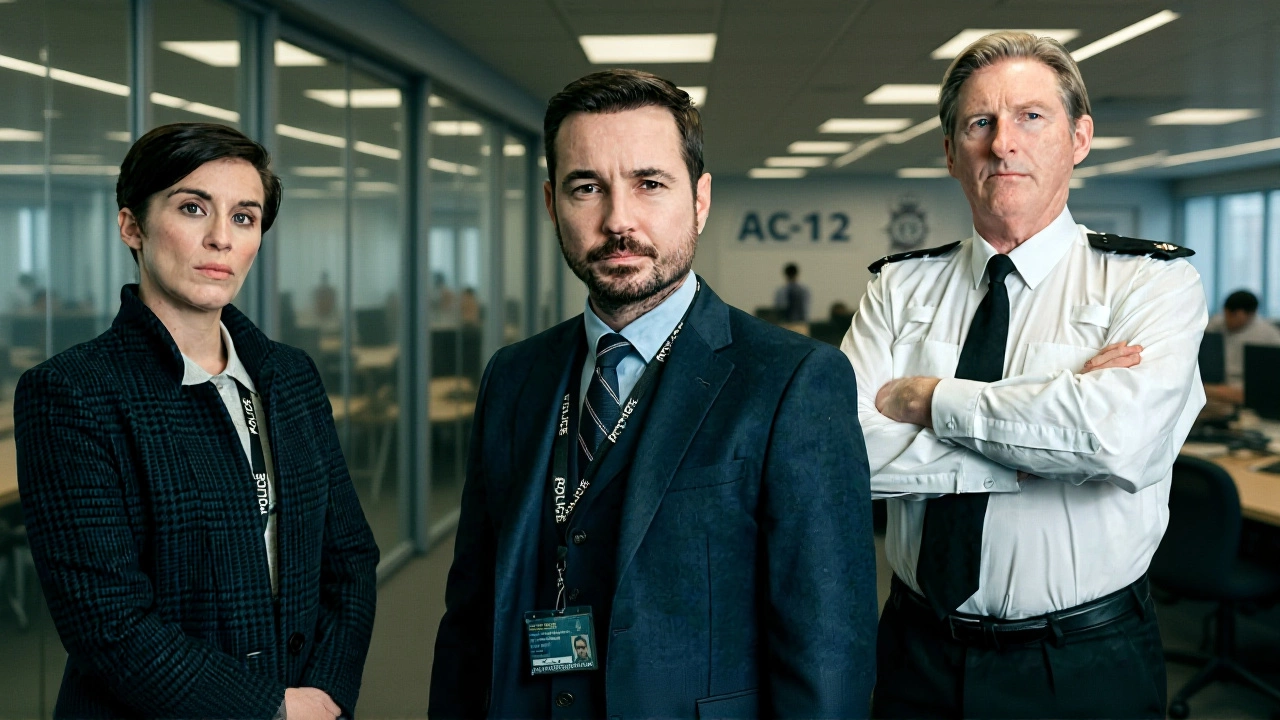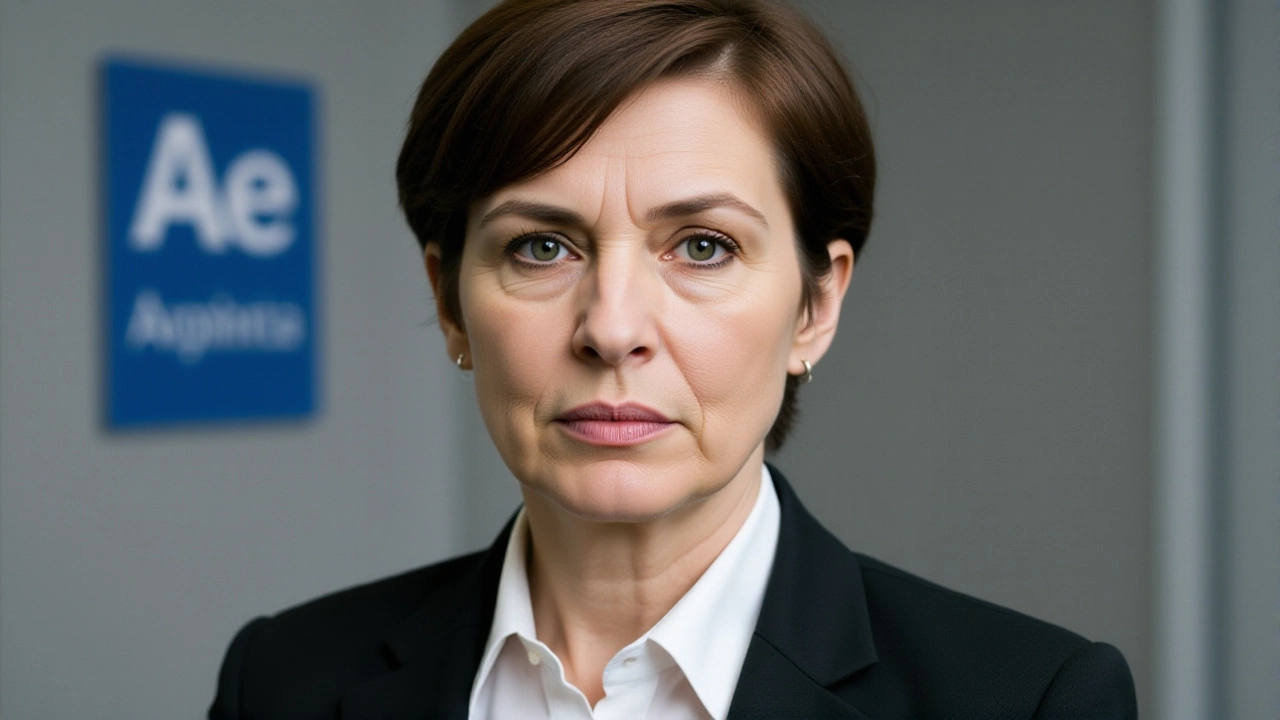Blue Lights Outshines Line of Duty as Top British Crime Drama in 2025
 Nov, 21 2025
Nov, 21 2025
When Line of Duty went on hiatus after its sixth season, fans didn’t just miss the tension—they missed the ritual. But in 2025, something unexpected happened: viewers started walking away from the BBC’s long-running police procedural—not because it was bad, but because something better had arrived. Enter Blue Lights, the Belfast-set police drama that Gerard Gilbert of The i Paper called "altogether more interesting and realistic." And he’s not alone. Across ELLE UK, The Week, and CBR, critics are calling this the golden age of British crime TV—and Blue Lights is leading the charge.
Why Blue Lights Feels Different
Blue Lights doesn’t have the glossy sheen of Line of Duty. It doesn’t rely on labyrinthine conspiracies or dramatic monologues about institutional corruption. Instead, it follows three rookie officers in Northern Ireland as they respond to real-time emergencies: domestic disputes, overdoses, late-night altercations, and the occasional violent crime. The show’s camera work is shaky, the dialogue is clipped, and the moral lines? Blurry. That’s the point. "It’s not about catching the bad guy," says one Belfast police consultant who worked on the show. "It’s about whether the good guys can stay human."" After winning a BAFTA for Best Drama in early 2024, the series returned for its third season in January 2025. Ratings jumped 22% from season two. Critics note the show’s refusal to romanticize policing—no heroic standoffs, no last-minute confessions. Just exhaustion, bureaucracy, and quiet courage.The Other Greats: A New Pantheon of Crime TV
While Blue Lights is the new darling, it’s part of a much bigger wave. ELLE UK’s 2025 list of top crime dramas includes Mare of Easttown, with Kate Winslet delivering what the magazine calls a "career-best performance" as a grieving detective wrestling with small-town secrets. Then there’s Unforgotten, where Nicola Walker leads a cold-case unit that digs through decades of silence—each episode feels less like a mystery and more like an autopsy of regret. Broadchurch, set in the misty coastal town of Dorset, still haunts viewers. David Tennant and Olivia Colman portray detectives whose personal wounds mirror the town’s trauma after a child’s murder. The media circus around the case? It’s chillingly accurate. And then there’s Dept. Q. Based on Jussi Adler-Olsen’s Danish novels, the Edinburgh-set series stars Matthew Goode as Detective Carl Morck, a broken man exiled to a grungy basement office after a botched operation left his partner paralyzed. What makes it sing isn’t the cases—it’s the team. Leah Byrne as DC Rose Dickson, with her wild ginger hair and razor-sharp wit, brings levity without undercutting the stakes. "She’s Strawberry Shortcake with a badge," wrote The Week. "And she’s the reason we keep watching."
Surprising Contenders and Genre-Benders
Slow Horses offers a different flavor: dark comedy meets spy thriller. It follows disgraced MI5 agents banished to a dead-end unit where they’re given pointless cases—until one of them accidentally stumbles into a national security crisis. It’s hilarious, cynical, and surprisingly tender. Happy Valley, still revered after its third season in 2023, remains unmatched in its portrayal of trauma. Sarah Lancashire as Sergeant Catherine Cawood doesn’t solve crimes with flair—she survives them. Her battle with a sister recovering from heroin addiction and raising her grandson after his mother’s murder? That’s not drama. That’s life. Then there are the wildcards. The Assassin, starring Freddie Highmore, flips the script: a quiet archivist becomes an expert killer after his wife is murdered. "He sheds his past like a skin," noted CBR. "And the female assassin he’s hunting? She’s not a villain. She’s a mirror." Smoke, inspired by a real 2017 warehouse fire in Manchester, unfolds like a slow-burn thriller. Each episode peels back a layer of lies—until the final explosion isn’t just physical. It’s moral. And The Stolen Girl, with its cross-border chase from Yorkshire to Paris, ends with a twist that redefines everything you thought you knew about the protagonist.What This Means for the Future of Crime TV
The shift away from Line of Duty isn’t about quality—it’s about authenticity. Viewers are tired of procedural tropes: the lone detective, the hidden corruption, the last-minute confession. They want grit. Nuance. Real people making real mistakes. Streaming platforms are taking notice. Netflix recently greenlit a fourth season of Dept. Q, with nine more Adler-Olsen novels to adapt. Amazon is developing a spin-off of Blue Lights focused on the Belfast community’s response to policing. Even the BBC, once the genre’s undisputed king, is quietly retooling its next crime drama to feel less like a soap opera and more like a documentary. "We’re not just watching crime shows anymore," says Dr. Helen Shaw, a media professor at Cardiff University. "We’re watching how society handles pain. And that’s why these shows are resonating now more than ever."
Behind the Scenes: Why These Shows Work
What unites these series isn’t budget or star power—it’s writing. Rebus, adapted from Ian Rankin’s novels, features dialogue so sharp it cuts: "The English come here on bikes and think they’re in Denmark," one character quips. "They don’t even know what a proper winter feels like." Get Millie Black, meanwhile, breaks the mold visually. Instead of the usual gray skies and rain, it’s set in the sun-drenched streets of Brixton. "It’s a crime drama with color," says creator Emily Watkins. "And that changes everything." The result? A genre that’s no longer just about solving crimes—but about understanding why they happen.Frequently Asked Questions
Why is Blue Lights considered more realistic than Line of Duty?
Blue Lights focuses on the mundane, high-pressure moments of frontline policing—responding to domestic calls, overdoses, and neighborhood disputes—without the dramatic conspiracies or over-the-top interrogations that define Line of Duty. Its handheld camera style, improvised dialogue, and lack of tidy resolutions mirror real police work, where most cases don’t end in arrests but in exhaustion and unresolved trauma.
Which of these shows has the most critical acclaim?
Blue Lights won a BAFTA in 2024, while Dept. Q and Happy Valley have each received multiple BAFTA and Royal Television Society nominations. Unforgotten and Broadchurch are frequently cited in "Greatest TV Drama of All Time" lists by Radio Times and Empire. But in 2025, Blue Lights led in viewer satisfaction scores across BBC iPlayer and Netflix UK, according to Ofcom’s annual report.
Are any of these shows based on true stories?
Yes. Smoke is inspired by the 2017 Manchester warehouse fire that killed two firefighters and exposed systemic safety failures. Dept. Q adapts Jussi Adler-Olsen’s novels, which are fictional but grounded in real Danish cold-case procedures. Blue Lights drew on interviews with 37 current and former PSNI officers to shape its scripts, making its portrayal of Northern Irish policing unusually accurate.
What’s next for these shows?
Blue Lights is filming its fourth season for a late 2025 release, with plans to explore the impact of Brexit on cross-border policing. Dept. Q has been renewed for Season 5, adapting Adler-Olsen’s ninth novel. Meanwhile, Amazon is developing a spin-off of Slow Horses centered on the character of Jackson Lamb, and Netflix is adapting Get Millie Black into a U.S. version with a Black female lead.
Why are British crime dramas so popular globally?
They prioritize character over plot, atmosphere over action, and moral ambiguity over clear-cut justice. Unlike American procedurals that often resolve cases in 42 minutes, British dramas linger in grief, guilt, and institutional failure. This depth, combined with strong writing and nuanced performances, creates stories that feel timeless—even when the settings are distinctly local.
Is there a recommended order to watch these shows?
Start with Blue Lights for raw realism, then move to Dept. Q for ensemble chemistry, followed by Unforgotten for emotional weight. Happy Valley and Broadchurch are best watched back-to-back—they’re both about communities shattered by violence. Save Slow Horses for when you need a laugh. And if you want to see how the genre is evolving, watch Get Millie Black last—it’s the future.